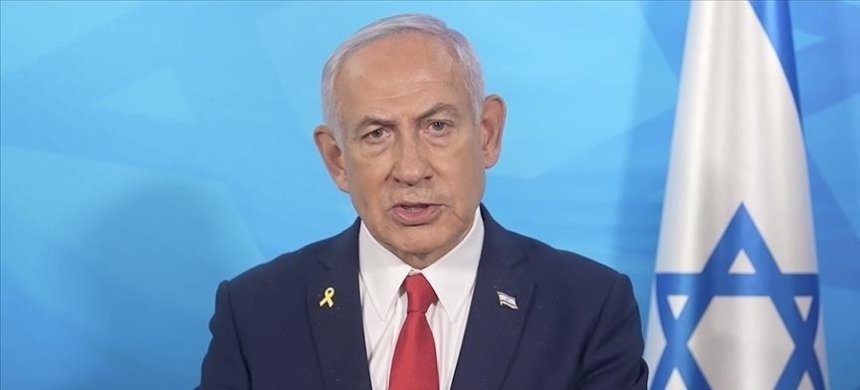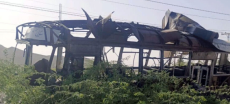Netanyahu Declares Israel Will Maintain Full Military Control Over Gaza Amid Escalating Offensive
JERUSALEM — Israeli Prime Minister Benjamin Netanyahu announced on Wednesday that Israel intends to keep full military control over the Gaza Strip following its ongoing offensive, setting stringent and controversial conditions for ending the prolonged conflict in the besieged Palestinian territory.
Speaking at his first press conference since December, Netanyahu reaffirmed Israel’s openness to a temporary ceasefire and a hostage exchange deal but outlined what many analysts call “maximalist and unrealistic” demands for a lasting peace. These conditions include the unconditional release of all hostages, the complete disarmament of Hamas, exile of its leadership, and potentially implementing a contentious US-backed plan that could involve the forced relocation of Palestinians from Gaza.
“This war will end when we achieve total victory — not a moment before,” Netanyahu declared. “Israel will retain security control over all of Gaza.”
Notably, Netanyahu referenced for the first time former US President Donald Trump’s February proposal, which envisions Gaza transformed into a “Riviera of the Middle East,” a tourism and investment hub under foreign—possibly American—administration. This plan has faced strong international criticism and accusations of ethnic cleansing by human rights groups and several governments.
Rising Death Toll and Humanitarian Crisis in Gaza
Netanyahu’s announcement comes amid an intensifying Israeli bombing campaign across Gaza. Palestinian health officials reported at least 82 deaths on Wednesday alone, adding to hundreds of fatalities in recent days. Despite mounting global concerns about starvation and humanitarian suffering, the offensive continues relentlessly against Gaza’s 2.3 million residents.
A recent United Nations Integrated Food Security Phase Classification report highlighted that over 93% of Gaza’s children—around 930,000—are on the brink of famine. Since March 2, Israel has enforced a near-total blockade on the territory, permitting only minimal humanitarian aid.
On Wednesday, Israeli authorities allowed 100 trucks carrying flour, baby formula, and medical supplies through the Kerem Shalom crossing. However, UN officials reported that distribution bottlenecks within Gaza have prevented aid from reaching civilians.
Stephane Dujarric, spokesperson for the UN Secretary-General, stated, “The limited supplies finally being allowed in are nowhere near sufficient to meet Gaza’s vast and urgent needs.”
Aid organizations condemned the aid deliveries as a “smokescreen.” Pascale Coissard, emergency coordinator for Doctors Without Borders in Khan Younis, described the gesture as “not a genuine humanitarian effort but a tactic to avoid accusations of deliberate starvation while keeping people barely alive.”
Domestic Political Backlash in Israel
Netanyahu’s firm stance sparked fierce criticism from Israeli opposition leaders, who questioned his handling of the mounting military and humanitarian crisis.
Opposition figure Yair Lapid warned, “His statements today mean occupation of Gaza for years and daily casualties among our soldiers,” cautioning that Israel’s international reputation and economic stability are at risk.
Yair Golan, leader of the centre-left Democrats party, sharply criticized Netanyahu, calling him “a pressured, obsessed, lying man who takes no responsibility.” Golan announced plans to sue Netanyahu for defamation following comments made during the press event.
Tensions escalated after Golan accused the government of inhumane conduct, claiming “a sane country… does not kill babies as a hobby.” Netanyahu condemned the remarks as “appalling.”
Growing International Alarm
Netanyahu’s insistence on maintaining total military control and the resurrection of Trump-era plans has raised serious concerns among human rights organizations and international observers. Many warn that ongoing military operations combined with strict blockade measures risk constituting collective punishment and could exacerbate Gaza’s worsening humanitarian disaster.











